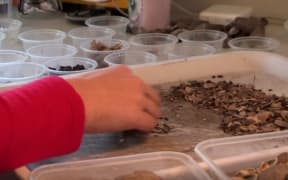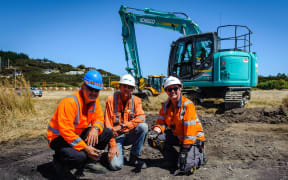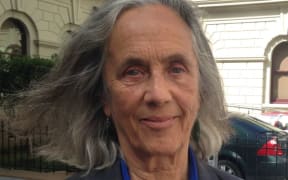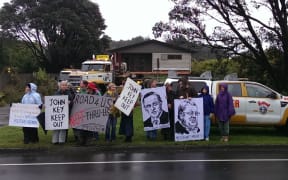Providing jobs for locals and protecting culturally significant sites has helped ease the anxiety of Te Ātiawa iwi about the Kapiti Expressway near Wellington.
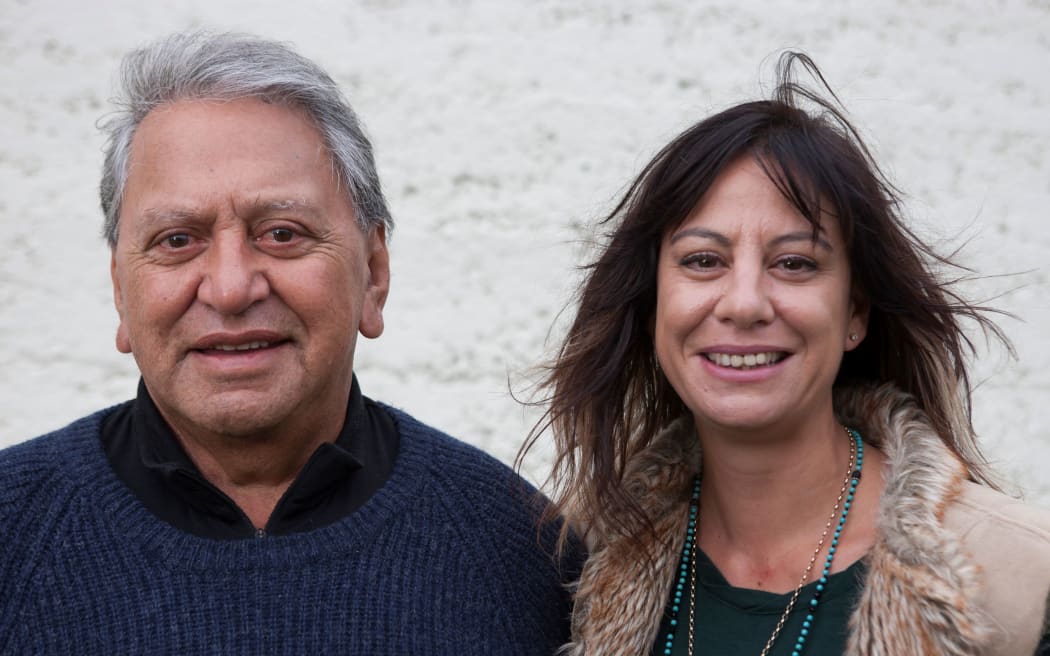
Tutere Parata and daughter Kristie Parata of Te Ātiawa. Photo: RNZ / Aaron Smale
Many within the iwi were initially opposed to the building of the new highway but much of that opposition has now dissipated.
When plans for the highway were first revealed many iwi members feared it would go through an ancient burial ground.
Iwi member Kristie Parata said initially the opposition was strong because of the risk that their ancestors' remains would be desecrated.
She said it also raised fears that history was repeating itself with more iwi land being lost through the Public Works Act.
"Denial was one of the first reactions. Surely not - and not understanding things like the Public Works Act, thinking that was something from the past.
"We thought that was something that wasn't relevant in today's world. We thought, surely they can't go through our urupa, our burial grounds," she said.
However, the iwi built a relationship with the agencies and organisations working on the highway and there has been a gradual shift in attitude from many iwi members.
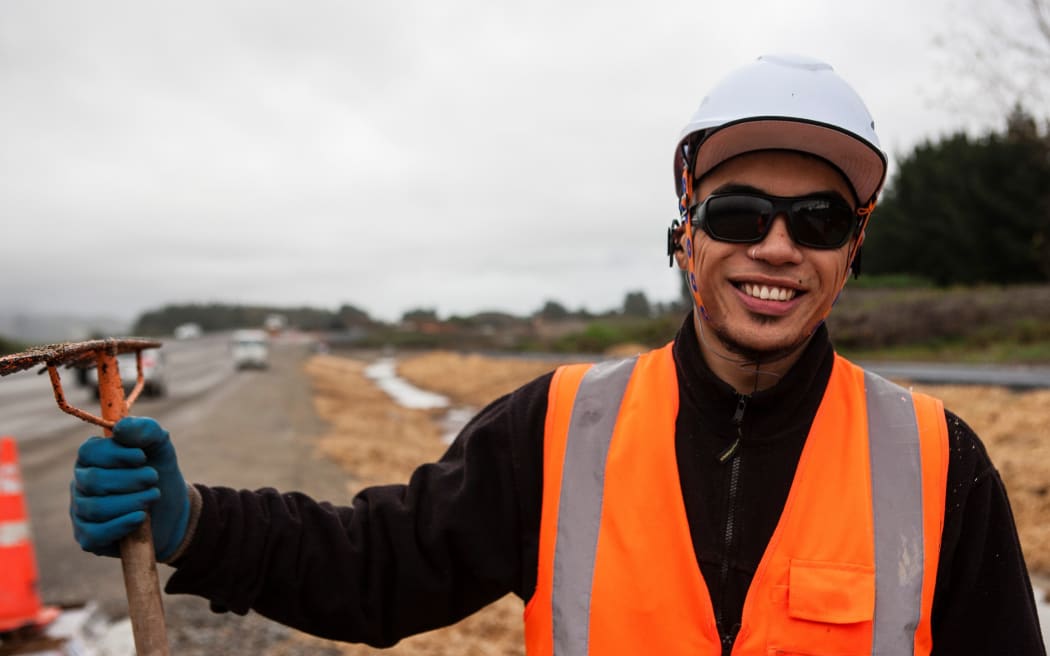
George Love, employee of landscaping company Natural Habitats. Photo: RNZ / Aaron Smale
They have also developed protocols around the disturbance of sites of cultural significance. Human remains from pre-European times were discovered near Waikanae and these were reinterred at another location by iwi.
And Kristie Parata said members of the iwi had taken up jobs and training opportunities on the project.
"Whilst we resisted the loss of land, we have babies to feed, we have bills to pay. It's been really good to see some of our younger whānau find employment and thrive on that employment," she said.
It was not the first time iwi had worked on transport projects in the area.
Kristie's father Tutere Parata said his father had worked on several, including Waikanae bridge and the highway near Paekakariki.
"My father worked on the roadway and his colleagues working with him were paid more than he was. And when he questioned why he was told he could live off the land."
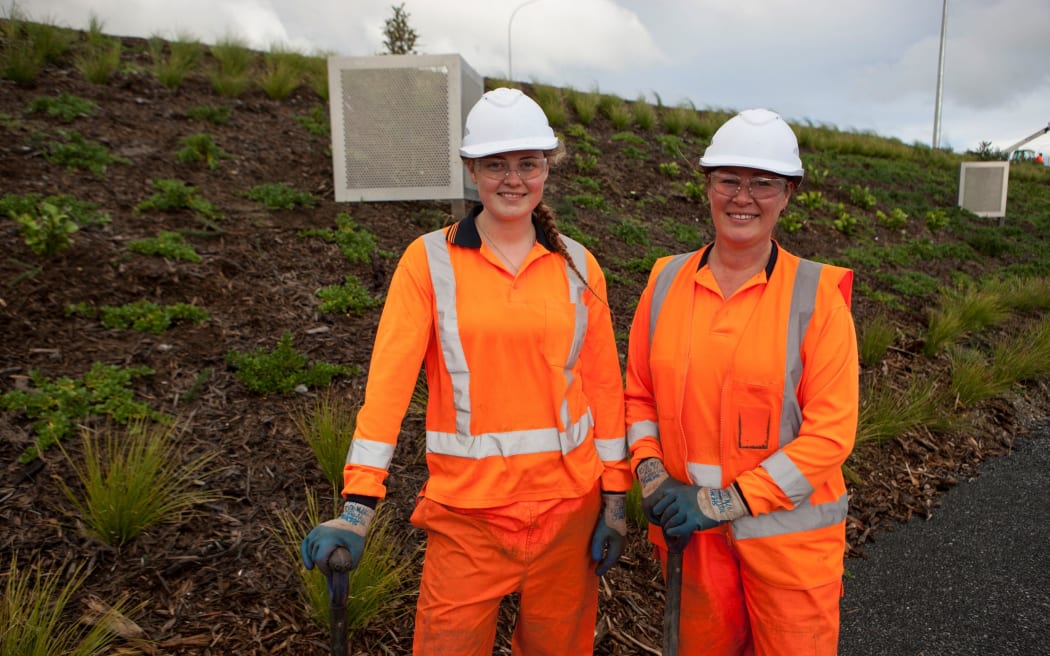
Matia Grace and Miri Okeroa, employees of landscaping company Natural Habitats. Photo: RNZ / Aaron Smale
Kristie Parata said there were a number of whānau from the iwi who had a history of working on roading projects, with some families having four generations that had worked in roading construction.
Many had found employment and training on the Kapiti Expressway project.
Landscaping company Natural Habitats was one business that has employed Te Ātiawa people for the Kapiti Expressway.
About 1.4 million trees will be planted along the length of the highway and the company would spend a further three years ensuring they became established.
Natural Habitats Wellington manager Tim Broadbent said employing local people was part of the deal.
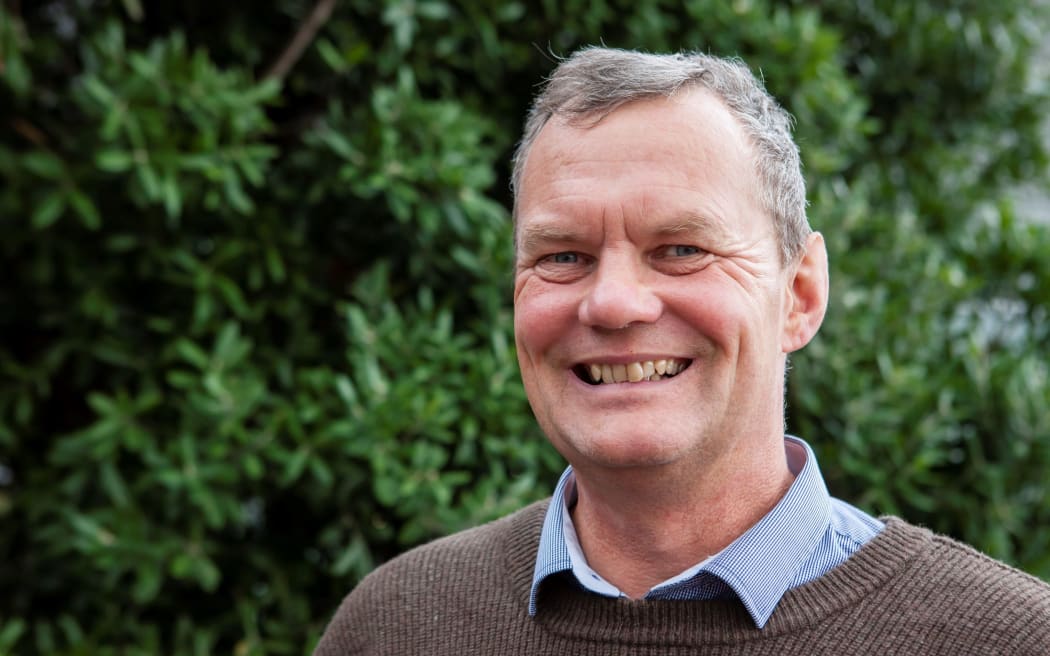
Tim Broadbent, Wellington general manager of Natural Habitats. Photo: RNZ / Aaron Smale
"We made a commitment when we tendered for the job right at the beginning of the process that we would try and employ as many local people as possible and put some local iwi people through some training," he said.
Kristie Parata said the landscaping and road work had been done in a way that had improved access to the urupa, or burial grounds.
Previously the location of the urupa on steep sand dunes meant it was difficult for elderly people to visit the site, but this had changed with the recent work.
Her father Tutere Parata said although there was disagreement within the iwi about the highway, most were now comfortable with the outcome.
